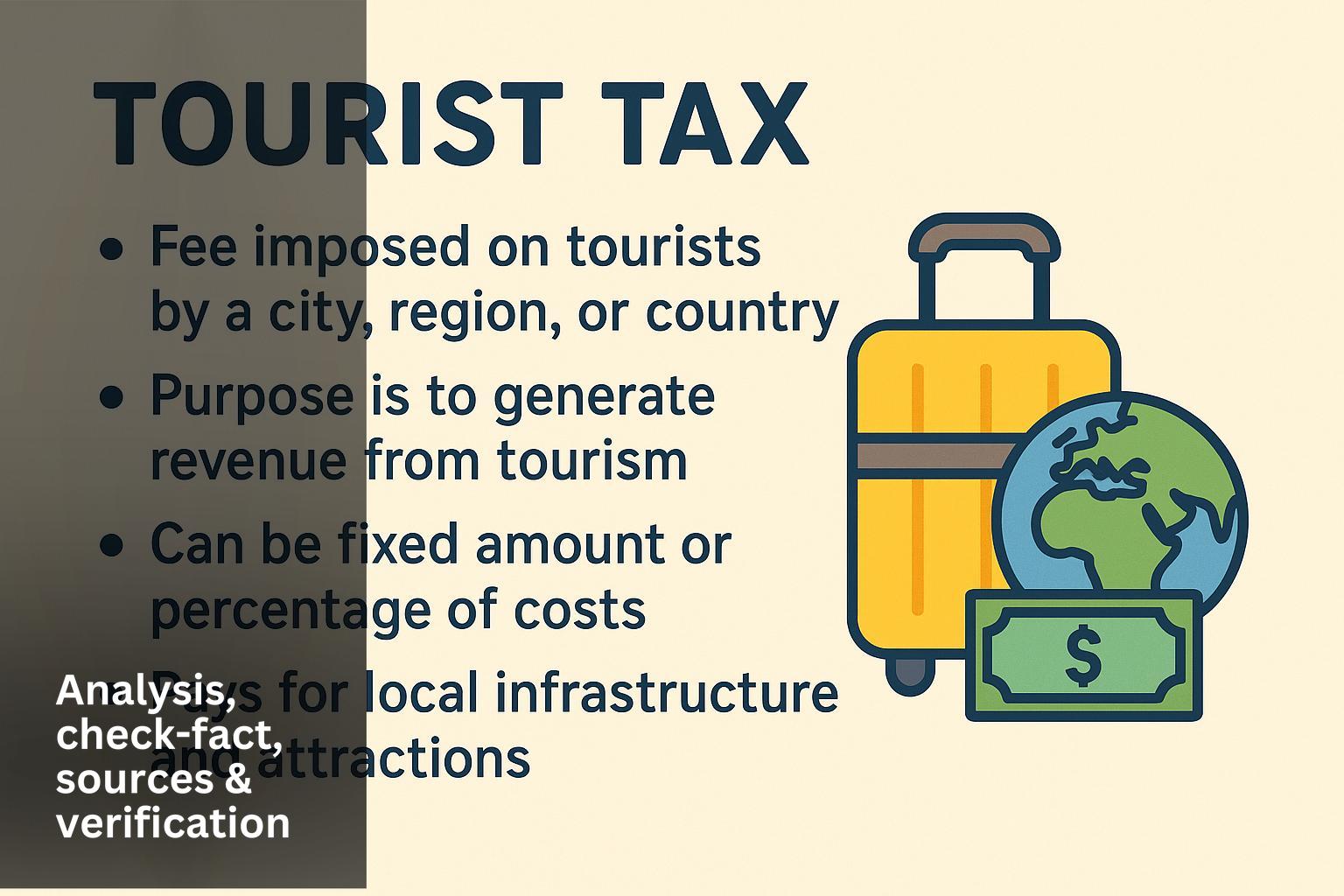Shoppers and travellers are bracing for a possible London tourist tax as officials eye new revenue streams, with talk of charges on hotels and short-lets like Airbnb. This guide explains who could be affected, how much you might pay, where similar fees already exist, and what it means for weekend breaks and family trips to the capital.
Essential Takeaways
- Proposed scope: The tax would likely target overnight stays in hotels and short-term rentals, adding a small per-night or per-stay fee.
- Likely cost band: Examples from other cities suggest anything from a few pounds to £10–£20 per night for premium stays.
- Who’s exempt?: Long-term residents and essential workers are often excluded in comparable schemes.
- Practical effect: A modest fee nudges visitor behaviour but won’t usually break a holiday budget; it could affect last-minute overnight stays more.
- Next steps: The mayor’s office will study models used across the UK and Europe before any proposal reaches City Hall.
Why London is suddenly talking about a tourist tax and what it might feel like
City leaders are looking for steady revenue without hiking council tax, and a visitor levy is an obvious option. For many visitors it will feel like a small extra on the bill , a few pounds at check-in or added as a service charge on an Airbnb receipt , but the cumulative gain for London could be significant. The mayor, Sadiq Khan, has said he’s willing to investigate how the idea has worked elsewhere, signalling this is a study rather than an immediate change.
That sensory detail , the small extra line on your booking , is worth flagging. It’s not dramatic, but for frequent business travellers or weekenders who visit often, it’s noticeable. Local hospitality groups and short-let hosts will watch closely because the way the charge is applied affects competitiveness and occupancy.
Which cities already charge visitors and how London could copy them
Cities from Paris to Barcelona and several UK towns already levy visitor fees, sometimes called a city tax or tourist tax. There’s variety: Paris adds a small nightly fee that scales with accommodation category, while some Spanish cities charge higher sums aimed at discouraging short city-centre stays. London would likely borrow a hybrid approach , modest per-night charges with higher bands for luxury hotels.
In practice this means budget hotels and many Airbnbs might see only a minor tick-up in cost, while premium hotels could be asked to pass on more. That scaling is politically palatable because it targets discretionary spending without hitting essential, affordable stays as hard.
How much you could realistically expect to pay on a London break
You can expect a range rather than a single figure. Comparable models suggest a likely band of around a few pounds per night for basic rooms, rising to perhaps £10–£20 for top-tier properties. If applied as a flat per-night rate it’s easier to administer, but a tiered model , cheaper for budget rooms, pricier for luxury suites , is fairer and more likely.
For a two-night weekend that means most visitors would pay an extra £5–£40 total, depending on accommodation level. For families and long stays, some cities offer weekly caps or exemptions to avoid penalising longer-term visitors.
Who would be exempt and how short-lets like Airbnb might be handled
Most schemes exempt long-term residents, people staying for work on employer-funded trips, and certain essential services. Short-lets pose a trickier problem because platforms like Airbnb can either collect the charge at booking or leave hosts to remit it. Practical rollout often sees platforms integrated into the system; that’s how many European cities maintain compliance and keep collections smooth.
That matters for hosts who worry about occupancy: if the fee is added at the point of booking and is transparent, guests can factor it in. But if it’s tacked on afterwards, it creates frustration and negative reviews , and hosts will push back.
What this means for travel budgets and where to save money
If the levy lands, it’s smart to book earlier and compare total prices, not just headline room rates. Smaller guesthouses and budget hotels might absorb some of the cost to stay competitive. Also check whether platforms list the levy upfront , clarity keeps surprises at bay and can guide cheaper choices.
You can still find deals. Off-peak stays, weekday breaks, and suburbs with good transport links will likely be the best value. Think of the tax as a small nudge rather than a holiday blocker: it changes the arithmetic, but not the joy of a London weekend.
What to watch now and how to keep informed
Mayor Sadiq Khan has said he’ll look at what’s worked elsewhere, which usually precedes formal consultation and impact assessments. That means a policy proposal, followed by debate at City Hall and likely consultation with boroughs and the hospitality sector. Keep an eye on official Greater London Authority updates and coverage from local outlets for timelines.
And practical tip: sign up for alerts from your favourite hotel chains and listing platforms , they’ll communicate any changes in fees quickly so you’re not surprised at checkout.
Ready to plan your next London stay? Check current prices and factor in any extra fees when you compare hotels and short-lets to find the best value for your trip.
